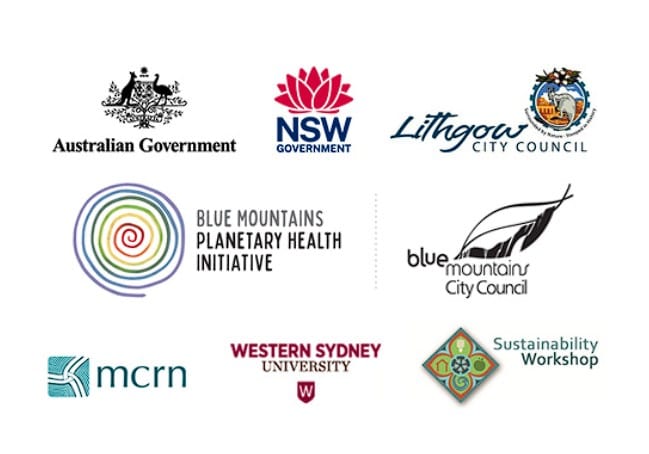2 – 4.30pm Saturday 30 September
Blackheath/Mt Victoria RSL Hall
2 Bundarra St Blackheath
This is a free event but booking is essential as numbers are limited
Reserve your spot here
Speakers:
Carol Probets – Birding Guide
Marg Turton – Bat Ecologist
Megan Halcroft – Native Bee Specialist and founder of Australian Pollinator Week

The Blue Mountains Planetary Health Initiative and the Rotary Club of Blackheath are co-hosting this
Pollinator Forum to launch Blackheath Rotary’s Birds, Bees, Butterflies and Bats Pollinator Project. Rotary will be working with local Men’s Sheds to produce nesting boxes and distributing seeds and information for planting habitat for our critically important pollinators.
Hear from leading experts to learn more about our local Birds, Bats and Native Bees and what you can do to support them, especially in the face of extreme weather events and habitat loss.
For more information contact Lis Bastian on 0407 437 553 or email lbastian@bmcc.nsw.gov.au
Carol Probets

Photo:
Brown Thornbill (Carol Probets)
Carol has worked as a professional birding guide for over 20 years, specialising in birds of the Blue Mountains and Capertee Valley region. Now semi-retired, her work now mostly involves carrying out bird surveys and leading birdwatching sessions for community groups.
In a voluntary capacity, she is a past President and current Vice-President of Blue Mountains Bird Observers, and since 2001 has been part of the Capertee Valley Regent Honeyeater Recovery Group.
Carol has been involved with research and surveying of the Regent Honeyeater, Superb Lyrebird, Gang-gang Cockatoo, Rockwarbler and has long held a special interest in bird movements, especially the migration of Yellow-faced Honeyeaters for which she coordinates annual counts in the Blue Mountains.
She featured in the documentary films “Chasing Birds” and “The Message of the Lyrebird” and has featured in three episodes of “Off Track” on ABC radio.
View
The Message of the Lyrebird Trailer
Marg Turton

Photo: Austronomus (Marg Turton)
Marg Turton is a Blue Mountains based ecologist who has been employed in various roles within the NPWS, Blue Mountains Council and as an environmental consultant for over 30 years. Marg has had a passionate interest in bats for many years and has carried out many bat surveys throughout NSW.
Marg has been studying the bat populations at Sydney Olympic Park since 2006, and is currently carrying out the longest running PIT tag monitoring of a colony of White-striped Free-tailed bats (
Austronomus australis) in Australia.
Marg is also passionate about dispelling the negative myths about bats, and loves sharing her fascination with these amazing creatures with others. Marg has run the extremely popular Blue Mountains Bat Night since 2012.
View
The Blue Mountains’ First Lady of Microbats
Megan Halcroft

Photo: Lasioglossum (Parasphecodes) on buckwheat flower (Megan Halcroft)
Hampton NSW
Since completing her PhD in 2012 (Investigations into the behaviour, biology and phylogeny of a potential crop pollinator: the Australian stingless bee
Austroplebeia australis) Megan has been concentrating on learning as much as possible about ‘the other’ native bees.
Over the past 10 years she’s conducted sit-down seminars and hands-on workshops to engage community interest, with the aim of encouraging individuals to support the naturally occurring native bee populations, by changing some of their behaviours.
Since moving to a small rural holding, she has been working toward educating food producers, such as orchardists, market gardeners, and hopefully eventually more broad-acre cropping enterprises. She has been engaged by the Hawkesbury Institute for the Environment, Western Sydney University, in a couple of their pollinator projects, and continue to be involved from the sidelines in such projects.
Since founding the Australian Pollinator Week, in 2015, Megan has been working closely with the Wheen Bee Foundation, to increase awareness and promote the importance of our native bees and other insect pollinators.
View
Native Bees of Australia
At the event which was attended by 80 people:
Feedback:
It was an interesting and informative afternoon. I learned so much and am more aware of how to best support the local pollinators. Claire Lebanovits





This workshop is being produced as part of a Blue Mountains and Lithgow Bioregional Collaboration for Planetary Health, supported by the Disaster Risk Reduction Fund (DRRF). The DRRF is jointly funded by the Australian and New South Wales governments.
